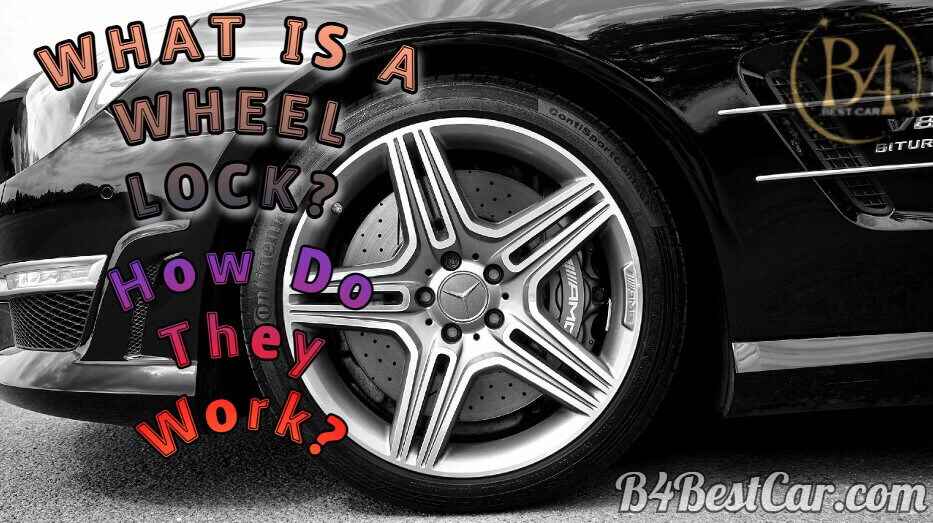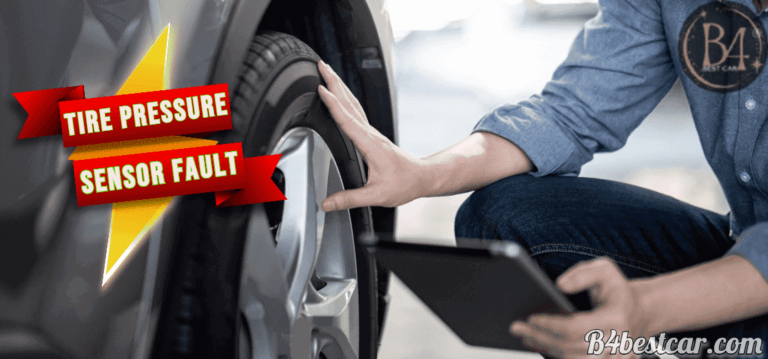Introduction
Ever parked your car in a sketchy neighborhood and worried about it getting stolen? One nifty little device that can help put your mind at ease is a wheel lock.
In today’s world, vehicle security is paramount, and wheel locks play a crucial role in keeping your prized possession safe. Let’s dive deep into the world of wheel locks, how they work, and why they matter.
Read More: Purge Valve: Symptoms of a Bad Canister Purge Valve
History of Wheel Locks
Before the advent of sophisticated security systems, vehicle owners relied on basic methods to protect their cars.
From chaining the wheels to using heavy-duty locks, early attempts were rudimentary at best. However, as car theft became more prevalent, the need for advanced solutions led to the evolution of wheel locks.
These devices have come a long way from their inception, evolving into reliable tools that ensure your vehicle stays put.
What is a Wheel Lock?
A wheel lock is a device designed to prevent a vehicle’s wheel from rotating or being removed. Think of it as a sturdy barrier that stands between your car and potential thieves. The primary components of a wheel lock include a lock mechanism, a key, and a locking lug nut or clamp that attaches to the wheel.
Read More: Best Used Cars to Buy in 2024
Types of Wheel Locks
Lug Nut Locks
Lug nut locks replace one or more of your car’s lug nuts with a special lock that can only be removed with a unique key. They’re discreet and don’t interfere with the aesthetic of your wheels.
Clamp Locks
Clamp locks, often referred to as “boot” locks, are more visible and clamp around the wheel, preventing it from rotating. These are commonly used by law enforcement to immobilize vehicles.
Electronic Wheel Locks
Electronic wheel locks are more high-tech and can be integrated into your vehicle’s security system. They use electronic signals to lock and unlock the wheels, providing an added layer of security.
Read More: Mercedes-AMG GT 63 Coupe 2024 Specs, Colors, Images
How Do Wheel Locks Work?
Mechanical Operation
Mechanical wheel locks operate through physical mechanisms. Lug nut locks require a special key to remove the lock, making it nearly impossible for a thief to steal your wheels without the correct key. Clamp locks work by physically clamping onto the wheel and preventing it from turning.
Electronic Operation
Electronic wheel locks use signals sent from a remote or a smartphone app to lock and unlock the wheels. When activated, the electronic system engages the locking mechanism, securing the wheel in place.
Read More: Subaru Sambar Price, Images, Specs, & Review
Advantages of Using Wheel Locks
Using wheel locks comes with several perks:
- Security Benefits: Wheel locks provide a robust layer of security, making it difficult for thieves to steal your wheels or your car.
- Deterrence Effect: The presence of a visible wheel lock can deter potential thieves from targeting your vehicle.
Disadvantages of Wheel Locks
However, wheel locks aren’t without their downsides:
- Potential Issues: Losing the key to your wheel lock can be a major hassle.
- Inconveniences: They can be cumbersome to install and remove, especially in adverse weather conditions.
Read More: Top 14 Fastest Electric Cars Of 2024
Installation of Wheel Locks
Installing wheel locks is relatively straightforward. Here’s a quick guide:
- Gather Your Tools: You’ll need a lug wrench, the wheel lock key, and the wheel locks.
- Remove One Lug Nut: Take off one lug nut from each wheel.
- Install the Wheel Lock: Replace the removed lug nut with the wheel lock using the special key.
- Tighten: Ensure the wheel lock is securely tightened.
Maintenance of Wheel Locks
To keep your wheel locks in top shape:
- Regular Checks: Periodically check the locks to ensure they’re secure.
- Cleaning Tips: Clean the locks with a mild detergent and a soft brush to prevent rust and debris buildup.
Read More: 2025 Ford Explorer Specs, Design, & Images
Choosing the Right Wheel Lock
When selecting a wheel lock, consider the following factors:
- Compatibility: Ensure the lock fits your vehicle’s wheels.
- Brand Reputation: Opt for reputable brands known for their reliability.
Common Myths about Wheel Locks
Misconceptions
Some believe that wheel locks are foolproof and cannot be bypassed. While they add a significant layer of security, determined thieves with the right tools might still find a way around them.
Facts vs. Fiction
Wheel locks are an excellent deterrent, but they should be part of a comprehensive security strategy, including alarms and GPS tracking.
Read More: 2015 GMC Terrain Reviews: Images, Specs, Prices & Colors
Conclusion
Wheel locks are a simple yet highly effective tool in the fight against vehicle theft. They offer a strong deterrent, are relatively easy to install, and provide peace of mind. While not infallible, when used in conjunction with other security measures, they significantly enhance your vehicle’s protection.
FAQ’s
How long do wheel locks last?
Wheel locks can last for many years if properly maintained and not exposed to extreme conditions.
Can wheel locks be bypassed?
While not impossible, bypassing wheel locks requires specialized tools and considerable effort, deterring most thieves.
Are wheel locks universal?
No, wheel locks vary in size and design, so it’s essential to choose ones that are compatible with your vehicle.
Read More: Mazda RX-7 FC: A Comprehensive Guide to the Iconic Sports Car
Do wheel locks affect wheel alignment?
No, wheel locks do not impact wheel alignment as they replace standard lug nuts without altering the wheel’s position.
Where can I buy wheel locks?
Wheel locks can be purchased from auto parts stores, online retailers, and some dealerships.








